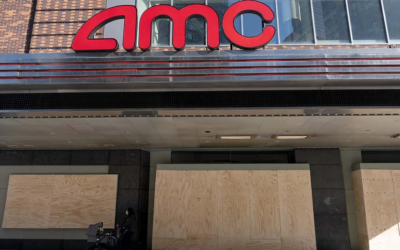Source: Variety
Ask any filmmaker what the biggest challenge in getting a movie made is, and there’s a very good chance the answer will be the struggle to maintain both creative and financial control. Having both is rarely an achievable feat, and often one will have to be sacrificed (at least in part) for the other. If one is to retain creative control over a picture, the cost may be having to work with extremely limited resources, perhaps no more than a few million dollars. If one is to require an abundance of resources for the picture (such as a budget of hundreds of millions of dollars), a filmmaker will most likely have to meet the demands of a major studio or any other person/institution willing to provide such a large sum, including the ability to provide creative input. There’s no doubt that filmmaking is an expensive and laborious process, and although the final product is usually more than worth it in the end, it can be easy to tell where sacrifices had to be made. Whether its a story hampered by executive meddling or production values hampered by an insufficient budget, there is hardly a single film that isn’t impacted either positively or negatively by these factors. For some filmmakers, this can prove to be an incredibly frustrating process, with one such example being the legendary Francis Ford Copolla.
Having made a name for himself in the 1970s with his 1972 masterpiece “The Godfather” (as well as its equally impressive 1974 sequel “The Godfather Part II”), Coppola is the type of director that one would think studios would be willing to allow to do whatever he pleased because of how successful those films were. Sure enough, Coppola was able to achieve such creative freedom early on in his career with such films as “The Conversation” and “Apocalypse Now”, but it didn’t take long for that goodwill to slowly fade away. More of his productions began to lose money, and studios became less eager to invest in the projects that Coppola wanted to make without having some say in the process. Although the 1970s allowed Coppola and his films to flourish, later decades have not been as kind to the “Godfather” director, resulting in a hit-and-miss career that has seen decent successes like “The Outsiders” and critical failures like “Jack.” His most recent film, 2011’s “Twixt”, was only given an extremely limited theatrical release and sent direct-to-video shortly afterwards, nothing close to the attention Coppola’s films were getting during his peak years.
That doesn’t mean Coppola has completely given up on filmmaking though; if anything, he’s planning on going bigger than he has in recent memory. Using about $120 million taken out of his own pocket (much of which earned from his self-owned vineyard), Coppola has announced his intentions to produce a film he calls “Megalopolis”, a film that he had written in the 1980s yet was never able to make before hand due to difficulty in getting studios to invest in the project. Actors like Cate Blanchett, Oscar Isaac, and Forest Whitaker are said to be involved with the film, and if Coppola has indeed won them over, he’ll have more than enough star power to advertise the film with, something that he definitely needs considering how little else about the film seems to pique the interest of major investors.
In an interview with GQ Magazine, Coppola discussed the struggles he faced in pitching “Megalopolis” to major studios in the 1980s, describing it as similar to how he pitched “Apocalypse Now” after making the first two “Godfather” films, but to significantly less success. “Major Hollywood executives reacted to [my] ‘Megalopolis’ pitch the same way they did when I had won five Oscars and was the hottest film director in town and walked in with ‘Apocalypse Now’ and said, ‘I’d like to make this next.’ I own ‘Apocalypse Now,’” Coppola states. “Do you know why I own ‘Apocalypse Now?’ Because no one else wanted it… so imagine, if that was the case when I was 33 or whatever the age and I had won every award and had broken every record and still absolutely no one wanted to join me, [then how do you think they’re reacting now?] I know that ‘Megalopolis,’ the more personal I make it, and the more like a dream in me that I do it, the harder it will be to finance.”
Looking at the modern Hollywood landscape, one can easily understand where Coppola’s frustrations are coming from. Not only are most major studios reducing the number of films they put out each year, but most of their attention is going to a small handful of tentpole films that are more often than not rooted in already well-known franchises. These are considered “safer bets” by studios, encouraging them to put more of their time and resources in those films instead of more risky ventures that might not even cost as much as the blockbusters that are so heavily promoted each year. As far as Coppola is concerned, maintaining artistic freedom is harder than ever for a working director, which explains why he is willing to finance “Megalopolis” by himself despite the immense production costs. It should be noted, however, that such a high budget does not pose a serious risk to Coppola’s own personal wealth, as he claims that he is currently in a comfortable enough position where he can pursue the making of “Megalopolis” without putting his finances at risk. “It’s not as if $120 million is the extent of what I have,” Coppola remarks. “I have bequeathed much to all my children. And then they themselves, the greatest thing I bequeathed to my children is their know-how and their talent. [My kids are] not going to have a problem. They’re all very capable. And they have Inglenook [the family winery], where we are. There’s no debt on this place. None.”
Not much is currently known about the story Coppola hopes to tell with “Megalopolis”, although sources claim that the film will be akin to a Roman epic set in a New York-like utopia called New Rome. Less is known about when exactly the film will see the light of day, as development continues and a production date has yet to be announced. Still, should Coppola succeed in finishing “Megalopolis” and getting it out for people to see, it will be very interesting to see how this passion project that is Copolla’s and nobody else’s fares in a world where franchises and blockbusters are the dominant forces in the cinematic media landscape.




